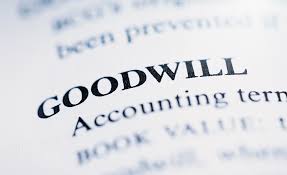
Put very simply, Goodwill (and here we mean business goodwill) is the difference between the total value of a business and the net tangible assets of that business.
There are plenty of misnomers regarding Goodwill. Just because a business has been established for five years and has loyal customers and a good location, it does not necessarily follow that the business will have goodwill. The most important major determinant of goodwill is PROFIT.
There are numerous definitions of goodwill. I prefer:
“The future benefits from an unidentifiable intangible”.
From a business point of view, this means that if a business has been earning x amount of profits over the last few years, it should be expected to continue to make these profits.
Calculating the amount of goodwill to attribute to a business is a fairly complicated process when done correctly. Unfortunately, most of the time goodwill is calculated incorrectly by using naïve and simplistic approaches. Invariably this leads to inflated values that benefit no-one, least of all the business owner.
When valuing goodwill, it is crucial that the person providing the valuation has the knowledge and experience to arrive at a value that is not only correct but defendable. It is essential to the valuation that the correct ratios and discounts are used, the correct valuation approach utilised, and the valuation report provided is understandable and transparent.
Once the total value of the business has been calculated, the net tangible assets are deducted from the total, leaving the goodwill figure.
Lee Goldstein has valued over $3.2 billion worth of businesses and intellectual property. He is frequently used as an expert witness by Lawyers and Solicitors in Family Law Cases, and in the Supreme Court. Very few business valuers (if any) have the qualifications, experience, and knowledge that Lee has gained over the past 30 years.
